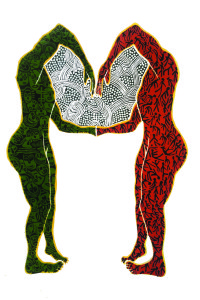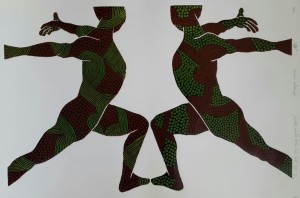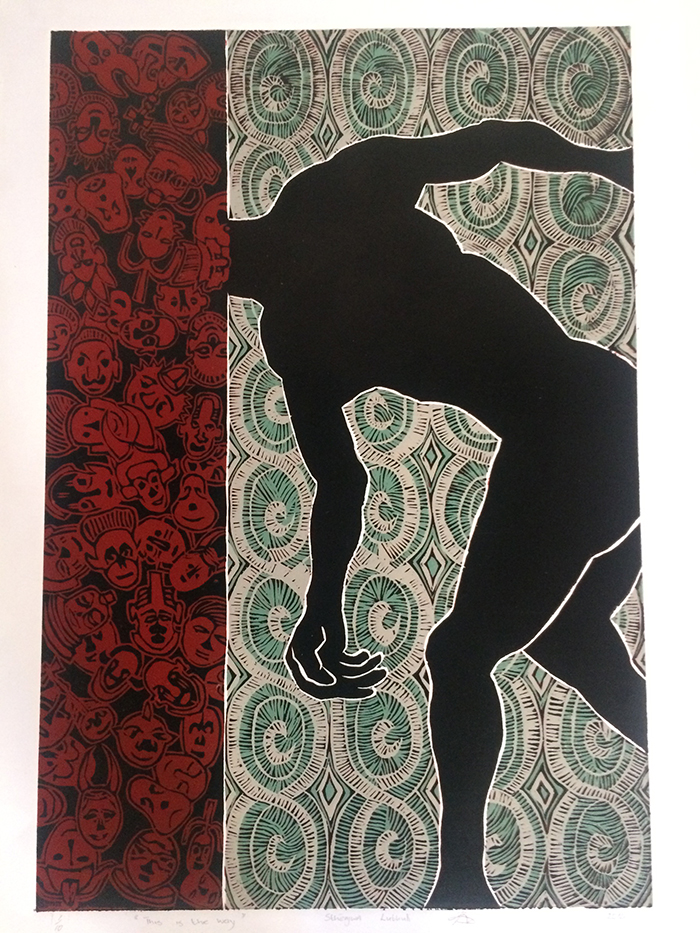
STHENJWA LUTHULI
About:
Sthenjwa was born in Bothas Hill in 1991 and attended iDelani Lower primary school. In 2010, he joined the BAT Centre visual art classes and says that these classes familiarised him with the professional art industry and encouraged him to further explore and develop his creativity. In 2011 Sthenjwa enrolled for the Velobala Saturday Art Classes hosted by the African Art Centre at the Durban University of Technology.
The Velobala classes offer visual art instruction and fine art education to young creative black artists located away from the traditional urban clusters of arts infrastructure. As a result of his dedication and commitment and overt talent he was selected to further take part in the Velobala Mentorship Programme in 2012. The mentorship programme exposed Sthenjwa to a more extensive programme of Visual Art in a formal environment, together with the students of the Department of Fine Art at the Durban University of Technology. Sthenjwa was mentored by Themba Shibase, artist and fine art lecturer at the Department of Fine Art at the Durban University of Technology.
Sthenjwa is inspired by a number of artists including, Edward Hopper, Gerald Sekoto, Ephraim Ngatane,Osuwa Nkomo and Yinka Shonibare. Since 2011 he has participated in a number of group exhibitions in KwaZulu Natal and Johannesburg and in 2012, he participated in an exhibition in Bremen, Germany and completed a mural project in the Concordia Tunnel, which runs along the Schwachhauser highway in Bremen. His work is represented in a number of private and corporate collections and in the international collection of the Leiterin der Stadtischen Galerie in Bremen, Germany. (text Izimpande Art Gallery)
Statement:
In my work I relook at our diverse ways of living in a contemporary society, and I critically analyse and evaluate these ways of living by contemplating them with our pre-modern and modern society. We are challenged to adapt and survive in a society that is constantly changing, and this is influencing one’s life to transform. This radical transformation is dominated by western ideologies which have enforced Africans to overlook or divorce themselves from their roots. I also look at the city buildings, colonial building in particular, they are made of high class architecture with beautiful detailed patterns. The buildings are different; and each design and pattern has a strong historical context and I peacefully question myself our relationship with the imposed city buildings and if it is necessary to be surrounded by them. As African we have lost a sense of our own humanity, and I think the structure of the city has perpetuated the issue of controlling and transforming human life. This structured methodology of controlling human lives is irrelevant to our historical origins, as I believe that the way we live our lives should be more spiritual. .
.




